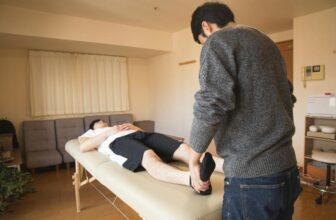
You may have heard about the benefits of physical therapy in preventing future injuries, but have you ever considered how these techniques could potentially transform your approach to fitness and overall well-being? Imagine a future where your movements are more precise, your muscles stronger, and your body more resilient against potential injuries. Physical therapy offers a unique pathway to not just treat existing issues but also to proactively safeguard yourself against future setbacks. The key lies in understanding how these tailored interventions can create a lasting impact on your physical health and performance.
Benefits of Physical Therapy in Injury Prevention
By engaging in physical therapy, you can actively strengthen your muscles and improve flexibility to help prevent injuries. Through targeted exercises and stretches, physical therapy helps you enhance your muscle strength, which is crucial for supporting your joints and preventing strains or sprains during physical activities. Additionally, physical therapy sessions focus on improving your flexibility, enabling your body to move more efficiently and reducing the risk of muscle imbalances that could lead to injuries.
Moreover, physical therapy aids in correcting poor posture and movement patterns that may predispose you to injuries. By addressing these issues, you can develop better body mechanics, decreasing the likelihood of overuse injuries or joint problems. The guidance provided by physical therapists empowers you to understand your body's limits and capabilities, allowing you to engage in activities safely and effectively.
Improving Strength Through Physical Therapy
Improving strength is a key focus of physical therapy sessions to enhance muscle function and prevent injuries. Through targeted exercises and techniques, physical therapists help you build strength in specific muscle groups to improve overall stability and reduce the risk of future injuries. By incorporating resistance training, bodyweight exercises, and functional movements, physical therapy aims to increase muscle strength, endurance, and coordination.
During physical therapy sessions, you may engage in exercises such as squats, lunges, and core strengthening routines to build lower body and core strength. These exercises not only help prevent injuries but also improve your balance and posture, contributing to better overall physical health. Additionally, incorporating weightlifting and resistance bands into your treatment plan can further enhance muscle strength and joint stability.
Enhancing Flexibility for Injury Prevention
Enhancing flexibility is crucial for preventing injuries and improving overall physical performance. By increasing your flexibility through physical therapy, you can enhance your range of motion, reduce muscle stiffness, and decrease the risk of strains or tears during physical activity. Flexible muscles and joints are less likely to be overstrained, leading to a lower likelihood of injury.
When you have good flexibility, your body can move more efficiently and effectively during exercise or daily activities. Tight muscles can alter your movement patterns and increase the stress placed on certain joints or muscles, potentially leading to injuries. By incorporating specific stretches and exercises into your physical therapy routine, you can target areas of tightness and gradually improve your flexibility over time.
A well-rounded physical therapy program that includes flexibility training can help you move more freely, maintain better posture, and prevent future injuries. Remember, flexibility is a key component of overall physical health and shouldn't be overlooked in your injury prevention efforts.
Movement Patterns and Future Injury Risk
Understanding how your movement patterns influence your risk of future injuries is essential for maintaining physical health and performance. By paying attention to how you move, you can identify potential issues that may predispose you to injuries down the line. Poor movement patterns, such as improper lifting techniques or asymmetrical running mechanics, can place unnecessary stress on your joints and muscles, increasing the likelihood of injury.
Physical therapy can help you address these faulty movement patterns through targeted exercises and corrective techniques. By working with a physical therapist, you can improve your body awareness and learn how to move more efficiently and safely. This proactive approach not only reduces your risk of future injuries but also enhances your overall athletic performance.




